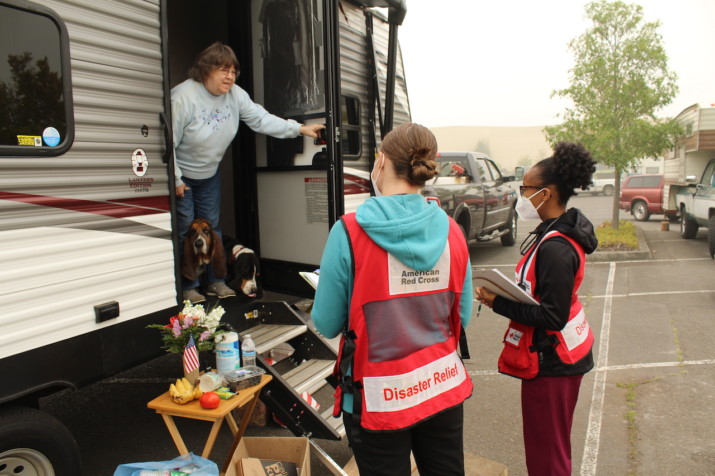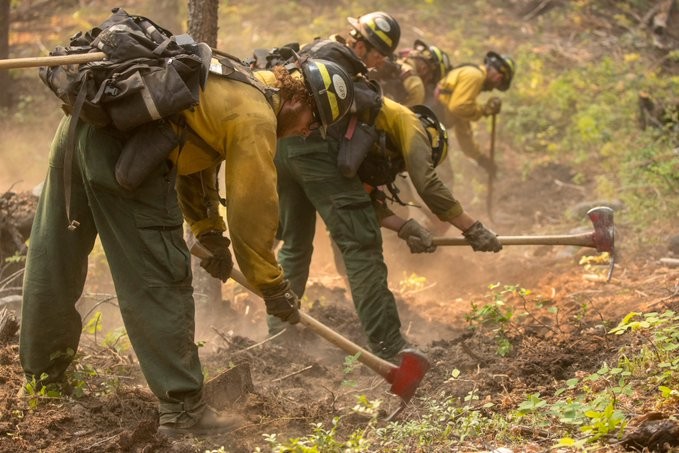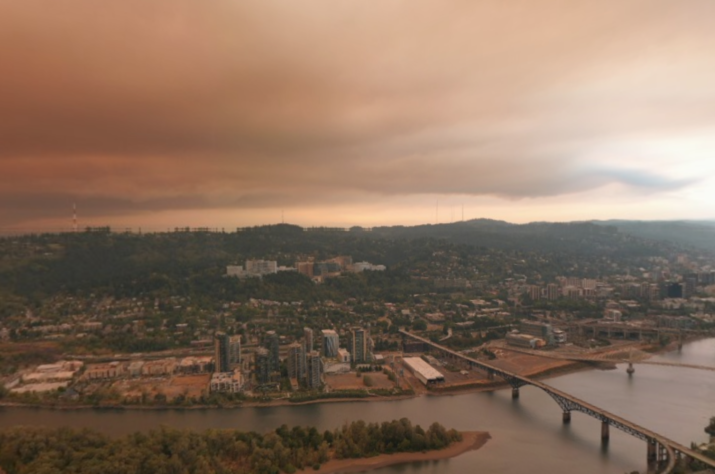
Local Charities Respond to Growing Needs of Oregon Wildfire Victims
- Donate to charities you know and trust.
- Designate the donation to go to a specific disaster relief effort as opposed to a general fund.
- Never click on links or open attachments in unsolicited e-mails, texts, or social media posts.
- Verify the legitimacy of any solicitation by contacting the organization directly through a trusted contact number.
- Do your research. Use the Federal Trade Commission’s resources to examine the track record of a charity.
- Beware of organizations with copycat names similar to, but not exactly the same as, those of reputable charities.
- Avoid charities that ask for you to pay by cash, gift card, virtual currency, or wire transfer.
- Pay by credit card or write a check directly to the charity. Do not make checks payable to individuals.
- Know that most legitimate charity websites end in .org rather than .com.
- Make contributions directly, rather than relying on others to make a contribution on your behalf.
Those affected by the fires can use your help – and there are plenty of legitimate charities out there to do that work. You just need to do your research before giving.
The Nonprofit Association of Oregon also compiled a list of resources we’d like to share with you.
The Ford Family Foundation, Meyer Memorial Trust, and the Oregon Community Foundation have jointly created the 2020 Community Rebuilding Fund with a goal of gathering resources and to plan for what comes next after the extraordinary devastation brought by wildfires across a state already reeling from the COVID-19 pandemic and consequences of racial injustice.
The United Ways across the state have set up Wildfire Relief Funds and are working to coordinate with partner organizations in their regions. Here are the United Ways that are responding: United Way of the Columbia-Willamette, Mid-Valley (Salem).
The MRG Foundation continues to fund organizations and efforts that are focused on BIPOC, Immigrant, Tribal communities, and social/racial justice organizations.
CAUSA of Oregon has set up a wildfire relief fund to purchase emergency supplies for immigrant Oregonians who have been evacuated or lost their homes due to the wildfires.

Beachie Creek Fire where firefighters are working hard to create a ‘Fireline’. It’s the hand or bulldozer line that firefighters put in down to bare mineral soil to hold the fire and keep it from growing.
GOVERNMENT RESOURCES:
The State of Oregon Wildfire Resources page is the official state site for all resources related to the wildfires in Oregon. It contains updates on firefighting efforts, evacuation maps, and alerts.
Oregon Office of Emergency Management volunteer management and donation page: https://oregonrecovers.communityos.org
If you must travel, please check Oregon Department of Transportation’s TripCheck for the latest conditions before you go anywhere.
EMERGENCY NOTIFICATION ALERTS
Keep track of wildfires near you. Sign up for emergency notifications. Most counties in Oregon have a network that you can sign up to receive alerts in case you need to evacuate. The Oregon Federal Executive Board has a complete listing of notification sign-ups by county.
RESOURCES FOR COMMUNITY MEMBERS
The Red Cross has a listing of shelters across the state for people displaced by the fires. These are updated regularly as needs change.
211 Info can connect community members with needed resources.
Project Wildfire has great tips on preparing for evacuation and other resources.
You can also track Oregon Smoke Information updates via an interactive map with the locations of current fires and the latest information about air quality advisories.
White Bird in Eugene is maintaining a great resource list for individual community members impacted by the Holiday Farm fire.
Various county and regional COADs and community builders have set up resource pages, many of them using the Supporting Resilient Communities Inc. system. These pages are designed to coordinate response efforts, avoid duplications, and share information.
CAUSA of Oregon has set up a wildfire relief fund to purchase emergency supplies for immigrant Oregonians who have been evacuated or lost their homes due to the wildfires.
















